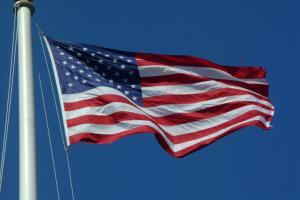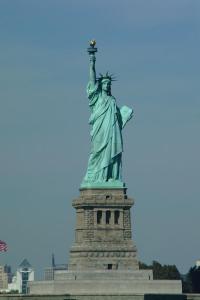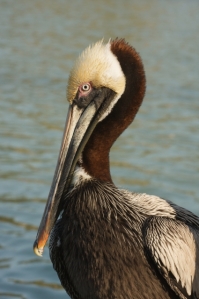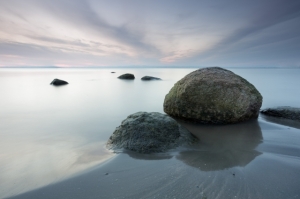THE TORCH OF REASON AND THE FIRST AMENDMENT
On the eve of the elections and the “increasing heat and decreasing light” of free expression, I think it apropos to remember that in the end it is the torch of reason that should determine how far our first amendment (the right to free speech) is allowed to go.
 In the Oct. 4th issue of the Christian Science Monitor, the article “Free Speech, How Free Should it Be?” covered this very topic. Using many recent examples, among them the US Supreme Court case now underway examining whether members of the Westboro Baptist Church of Topeka, Kansas, went too far when they staged a protest at a fallen marine’s funeral in Maryland. The demonstrators hoisted signs proclaiming: “You are going to hell” and “Thank God for Dead Soldiers”. Fred Phelps, pastor of the Westboro church, has made a career out of using blunt and offensive statements to try to shock Americans into joining his crusade against gay rights. His followers show up at military funerals and announce that God is killing American soldiers for the sins of the country. Funeral goers are urged to repent…or else.
In the Oct. 4th issue of the Christian Science Monitor, the article “Free Speech, How Free Should it Be?” covered this very topic. Using many recent examples, among them the US Supreme Court case now underway examining whether members of the Westboro Baptist Church of Topeka, Kansas, went too far when they staged a protest at a fallen marine’s funeral in Maryland. The demonstrators hoisted signs proclaiming: “You are going to hell” and “Thank God for Dead Soldiers”. Fred Phelps, pastor of the Westboro church, has made a career out of using blunt and offensive statements to try to shock Americans into joining his crusade against gay rights. His followers show up at military funerals and announce that God is killing American soldiers for the sins of the country. Funeral goers are urged to repent…or else.
In Maryland, it was too much for the grieving father, Albert Snyder, to endure. He sued. The case pits Mr. Snyder’s First Amendment right to peacefully assemble in a church to mourn his son’s passing against the Westboro protesters’ right to chant harsh slogans and display shocking signs in their campaign for so-called moral salvation for the nation.
 The Monitor adds: “The essence of free speech in America is not that you can say whatever you want. There is no constitutional right to libel someone, or to use ‘fighting words’ that are sure to provoke fisitcuffs…there is no constitutional right to falsely yell ‘Fire!’ in a crowded theater. Government regulation of that speech is appropriate because of the predictable outcome of panic.”
The Monitor adds: “The essence of free speech in America is not that you can say whatever you want. There is no constitutional right to libel someone, or to use ‘fighting words’ that are sure to provoke fisitcuffs…there is no constitutional right to falsely yell ‘Fire!’ in a crowded theater. Government regulation of that speech is appropriate because of the predictable outcome of panic.”
Yet we are also a country that can paint a Hitler mustache on the president’s likeness without fear of the government’s wrath (something I personally find utterly deplorable nonetheless), while a poem critical of the King in Jordan can land its writer in jail.
 So what is the yardstick? Supreme Court Justice Louis Brandeis provided a sage response in a 1927 case: “To courageous, self-reliant men, with confidence in the power of free and fearless reasoning applied through the processes of popular government, no danger flowing from speech can be deemed clear and present unless the incidence of the evil apprehended is so imminent that it may befall before there is opportunity for full discussion. If there be time to expose through discussion the falsehood and fallacies, to avert the evil by the processes of education, the remedy to be applied is more speech, not enforced silence.”
So what is the yardstick? Supreme Court Justice Louis Brandeis provided a sage response in a 1927 case: “To courageous, self-reliant men, with confidence in the power of free and fearless reasoning applied through the processes of popular government, no danger flowing from speech can be deemed clear and present unless the incidence of the evil apprehended is so imminent that it may befall before there is opportunity for full discussion. If there be time to expose through discussion the falsehood and fallacies, to avert the evil by the processes of education, the remedy to be applied is more speech, not enforced silence.”
In other words, “It is the principle that the best way to counter a stupid idea, a hateful idea, a dangerous idea, is through the expression of better ideas.”
Sound advice. We have been hearing from the rabble rousers, the stirrers of the pot, and the haters for months now. We must use our first amendment to speak up and out against those who will not let a family bury their dead in peace. We must vote for those who represent us in the forum of public civil discourse, that will be, well, civil. It is not in yelling back, but in providing thoughtful responses that seek consensus and equanimity that the wonder of our first amendment stands. If we do not use our first amendment right to counter the “stupid, hateful or dangerous ideas, we have no one to blame but ourselves, and oh yeah, as Jon Stewart and Stephen Colbert would say, “the media”!



















